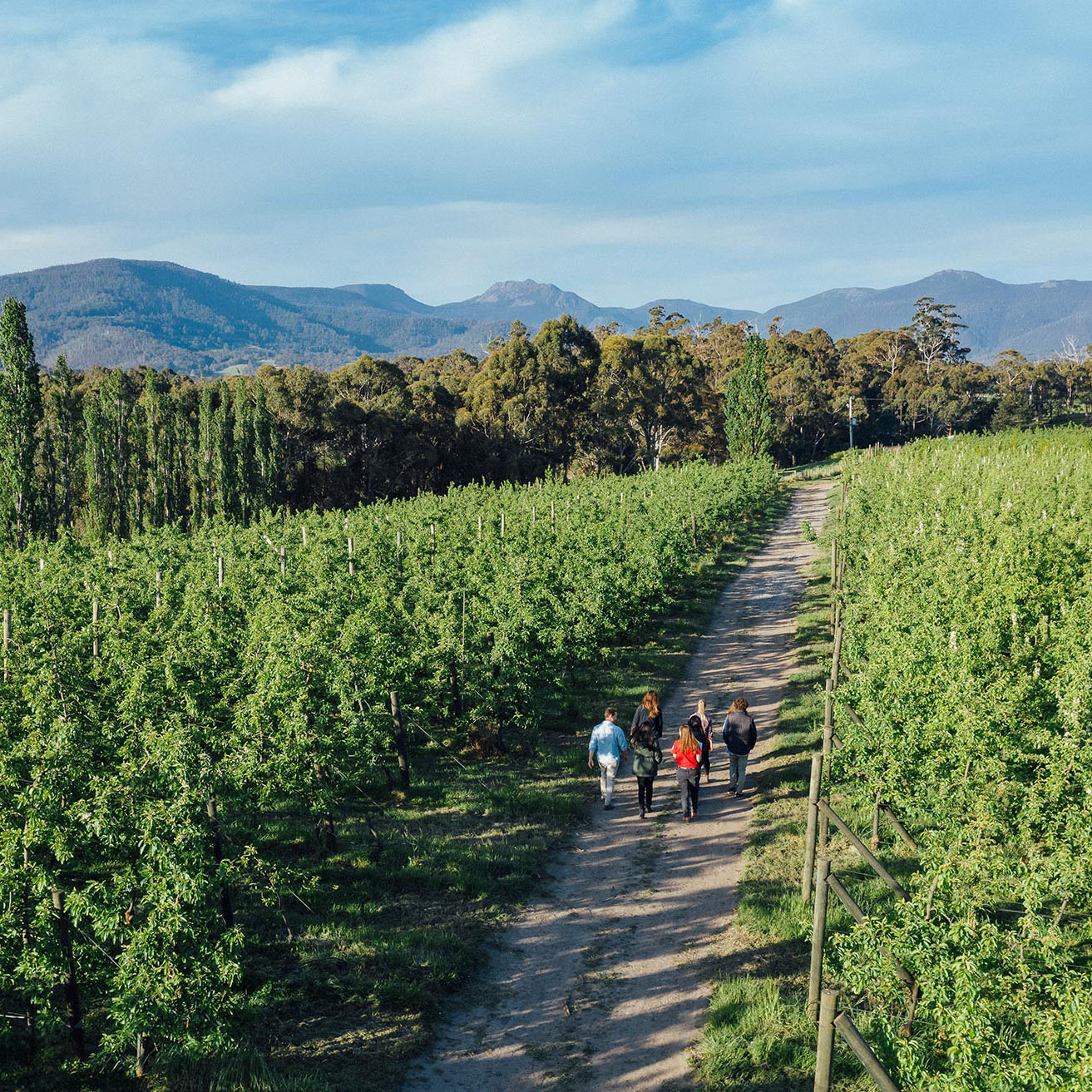Course options
Bachelor of Biomedicine
3 years full-time, up to 7 years part-time
Hobart, Launceston
3 years full-time, up to 7 years part-time
Hobart, Launceston
CRICOS 113034F
Learn from the best
Learn from world-leading, and globally connected medical and laboratory research scientists.
Hands-on, practical learning
Project-based opportunities provide hands-on research and practical experience in working laboratories.
Launchpad to future study
Biomedicine is a launchpad to further studies in allied health, medicine, medical research, and more.
Learn the sciences that underpin human medicine
Your studies include core subjects across a breadth of biomedical sciences, including anatomy, physiology, biochemistry, molecular biology, neuroscience, genetics, immunology, and microbiology.
In addition, this degree offers a choice of two majors that provide specialist knowledge and skills in either medical research or medical sciences. You can also choose to study both majors, greatly broadening your career options upon graduation.
Hands-on learning from researchers actively connected to the healthcare sector
Our biomedicine course is designed and taught by active medical researchers at the Tasmanian School of Medicine and the School of Health Sciences. It also draws on the expertise of our specialist research and teaching institutes: the Menzies Institute for Medical Research, and the Wicking Dementia Research and Education Centre.
As the single university for Tasmania, we provide unparalleled access and connection to the local community, health system, and institutes. This means that throughout your studies you are learning from experts who are directly engaged with the health sector both locally, nationally, and internationally.
We also provide access to the global knowledgebase of research groups, institutes, and organisations through our ongoing collaborations and research.
You’ll develop valuable knowledge, skills and confidence in research methodology, scientific observation, and analysis, and advance your ability to identify and solve problems, think critically, and communicate science to a broad audience.
Study options in this degree
A major is an area of focus in your degree. During your studies, you’ll choose an area that interests you, and then study a group of units related to that area. You also have the option to study a second major from this degree, or sourcing one from elsewhere in the University, such as the new major in Sustainability.
Find out more at What is a Major?
This major is ideal for those interested in a career in medical research. You will gain skills and knowledge that underpin advancements in health, learning to understand diseases, and developing tools and treatments for them.
These skills have been highly visible in recent years as researchers across the world have needed to understand the transmission and evolution of COVID, create fast and accurate testing options, and develop safe and effective vaccines.
Through hands-on laboratory experience and engagement with working researchers, you’ll develop your communication, problem-solving, and critical thinking skills, which are all crucial to the success of a researcher. Plus, you'll master the practical tools and techniques used in the application and translation of biomedical science through contemporary medical research.
Medical sciences are at the very heart of healthcare, providing vital results that assist in the diagnosis, monitoring, and treatment of disease.
A particular focus of this major is the application of knowledge and skills to understand how chronic and infectious diseases develop and progress, and the application of this knowledge to develop strategies and technologies for the prevention, diagnosis, and management of these diseases.
During the COVID outbreak, medical scientists were undertaking the tests required to identify the evolving variants, and providing critical input into public health responses. They also worked across the health sector to translate their new discoveries into practice.
Further study options
While the Bachelor of Biomedicine provides skills, knowledge, and confidence to pursue a wide range of careers upon graduation, you may also wish to explore further study options. Some options relevant to biomedicine are below.
Adding an honours year after graduation from the Bachelor of Biomedicine can be a fantastic way of deepening your knowledge, and furthering your research skills and confidence. This can make you a more competitive graduate when you pursue your future career, or set you up for further postgraduate study or higher degree research.
One-year honours options relevant to this degree are:
Graduates of the Bachelor of Biomedicine may wish to explore postgraduate studies in Allied Health.
You may look to deepen your knowledge with further postgraduate studies in a Master of Laboratory Medicine.
Graduates of the Bachelor of Biomedicine who are interested in pursuing further studies in medicine should refer to the medicine course page for further details about admission pathways to the medicine course at the University of Tasmania.
Find out more about what you'll study, entry requirements, fees and scholarships - and to apply
* Subject to international student visa conditions if applicable.
Career opportunities
The current world-wide health crisis highlights the importance of biomedicine in helping to manage and treat disease on both an individual and population basis. Our course will give you the skills to undertake technical analysis and research to assist medical scientists and clinicians in expanding knowledge, and in the diagnosis, treatment and prevention of disease.
You can apply your expert scientific skills and research findings to develop a better understanding of illnesses and other medical problems, and not be limited to a single professional discipline. With your biomedical skills and knowledge, you can seek out a career in research institutes, university departments, hospitals, pathology laboratories, or pharmaceutical and biomedical companies.
Jobs include working as a medical scientist, medical researcher, and many other medical science professionals. Other opportunities include science communication, advisory roles, policy development, and disease surveillance in industry, government, non-government organisations, and health organisations.
The healthcare industry in Australia is expected to grow by over 15 percent by 2024, and with your skills and knowledge also recognised internationally, you can forge an exciting career here, or in my other locations around the world.
* Department of Employment, Skills, Small and Family Business five year projections from May 2019 to May 2024.
